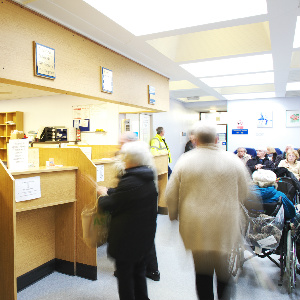Three quarters (75%) of patients think it will become more difficult to get a GP appointment in coming years, a survey has shown.
The BMA poll of over 1,000 adults in England found that more people are dissatisfied with the NHS than satisfied (43% compared with 33%) – a figure which has doubled over the last two years.
In addition, more than four in five (82%) are worried about the future of the NHS, with 62% thinking the service will get worse in the coming years.
And seven in ten people think that the health service is headed ‘in the wrong direction’.
This comes as Pulse recently revealed that average waiting times for a GP appointment remain at two weeks despite last year’s rescue package.
The top three concerns about the NHS were a lack of funding; that it will stop being free at the point of use; and that waiting times will increase.
The survey also found that and seven in ten people are concerned Brexit is overshadowing the NHS politically.
The BMA also polled GPs, finding that almost half (48%) have a vacancy in the practice they work in, of which 69% had been unfilled for more than six months.
This comes as Pulse revealed last month that almost one in five practices has had to abandon searching for a new GP as vacancy rates have hit their highest ever.
Speaking at the BMA’s Annual Representative Meeting today, chair Dr Mark Porter expressed deep concern about the findings, which he blamed on Government underfunding which he said was ‘an explicit political choice’.
Bringing up Prime Minister Theresa May’s blaming of GPs for A&E pressures earlier this year, Dr Porter added: ‘When almost a third of practices can’t fill GP vacancies, when they’re dealing with tens of millions more appointments than they did a decade ago, with a smaller share of NHS funding… fhe Prime Minister blames doctors?
‘When her own government is so conspicuously failing to keep its side of the bargain and recruit the much-trumpeted 5,000 new GPs by 2020. Three years ago, it was a pledge. Then it became an ambition. Now it seems more like a mirage.’
Pulse October survey
Take our July 2025 survey to potentially win £1.000 worth of tokens














